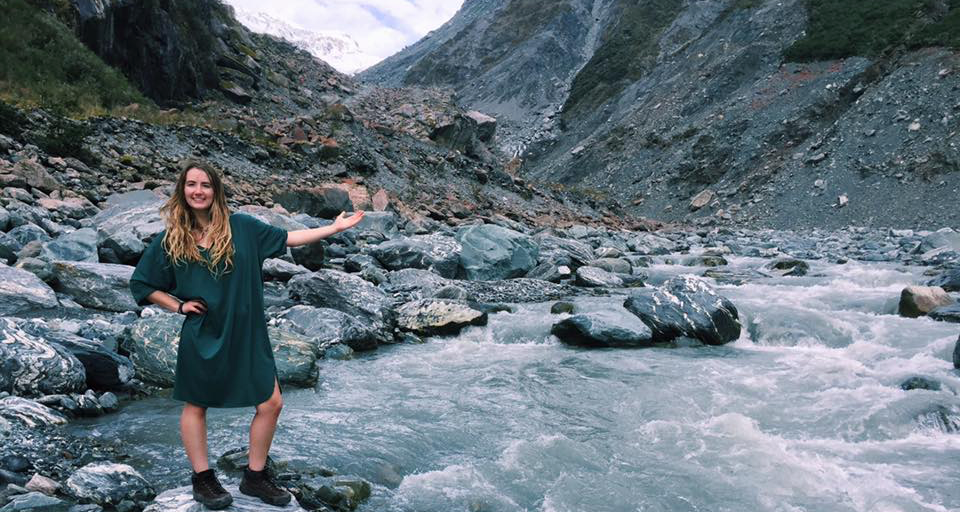Tales of a Nomad in New Zealand: Travels and Transitions
Bell writer Sierra Flach ’18 has traded her Road Hall at Gordon for the rolling hills of New Zealand. Studying abroad at the University of Otago in Dunedin, she will be bringing the latest articles from the last stop before Antarctica. She’s taking a mix of English and communication arts classes during the week and traveling as much as possible on the weekend, while reporting back to Gordon with advice for future nomadic students who want to take their studies to a whole new level. Read her first post >
Spring break came surprisingly fast at the University of Otago. Even with classes starting in early July, an August spring break seemed strange, especially with most of my friends having only just started classes again at Gordon. While I watched them from afar work Orientation week, have their first day of classes and attend the annual Scottie Faire and all the other fall kick-off festivities, I was trying to pull together a ramshackle group of friends who were as determined and crazy as I am, keen to trek all over the mountains and valleys of western New Zealand.
In a rented Toyota Camry, stuffed with hiking packs and snowshoes, the four of us took off on a wild, weeklong drive. We hiked alpine mountains, forded rivers, crossed one-at-a-time over chain link bridges, camped in huts and tents and saw ancient glaciers. We also nursed blisters by day three, were stopped by avalanche terrain and came face-to-face with the inevitable variations in our perceptions of what’s enjoyable and feasible (and how early or late to wake up).
As soon as we arrived back at “Uni,” the immediacy of deadlines became all-too-real. Now my adventures seem more distant as I spend long hours in the library citing, referencing and researching New Zealand authors and theories of Film Festivals’ importance to culture. But I make it enjoyable by studying with friends (and sometimes outside when I remember to charge my computer).
While my current priority is cranking out papers, I still manage to enjoy herbal medicine-making classes, check out cool local spots and plan weekend trips. Last weekend I jumped on a frisbee tournament trip up north with Dunedin’s Ultimate team. Despite my mediocre skills and last-minute decision to go, it was an incredible weekend with 10 games and a trip to hot springs crammed into just 48 hours. It once again reminded me of how important it is to be open to new experiences (read more about that in my first post).
So, “What can I learn from New Zealand in one semester?” Reflecting on my experiences and the friends I’ve made, I’ve come to the conclusion that time is so short—and more specifically, semesters are so short. Four months just doesn’t seem like enough time to develop friendships, see everything and fully comprehend it all. I suppose this trip has really shown me how important simple everyday interactions are. When days become numbered, you make them worth so much more. You do your best to fill them with qualitative experiences as opposed to quantitative.
My wild road trip reminded me that everyone has different perceptions of what makes experiences qualitative. Some like to hike long and far, and go to the highest peak, while some feel comfortable in repetition and love to play frisbee every week or go to their favorite restaurant over and over again. I, myself, like to soak in hot springs and see something new every day.
Understanding that all those perceptions are okay and that neither is right or wrong, is so important. That is how you should go through an experience like studying abroad: try new things, go to beautiful places, make friends. And on the off chance you don’t get along with someone you meet, try to look at things from their point of view. In understanding different people, you begin to understand yourself in a broader context—eventually a global context—and that’s what going abroad is all about.
By Sierra Elizabeth Flach ’18, communication arts and English language and literature (creative writing)
 The Bell
The Bell